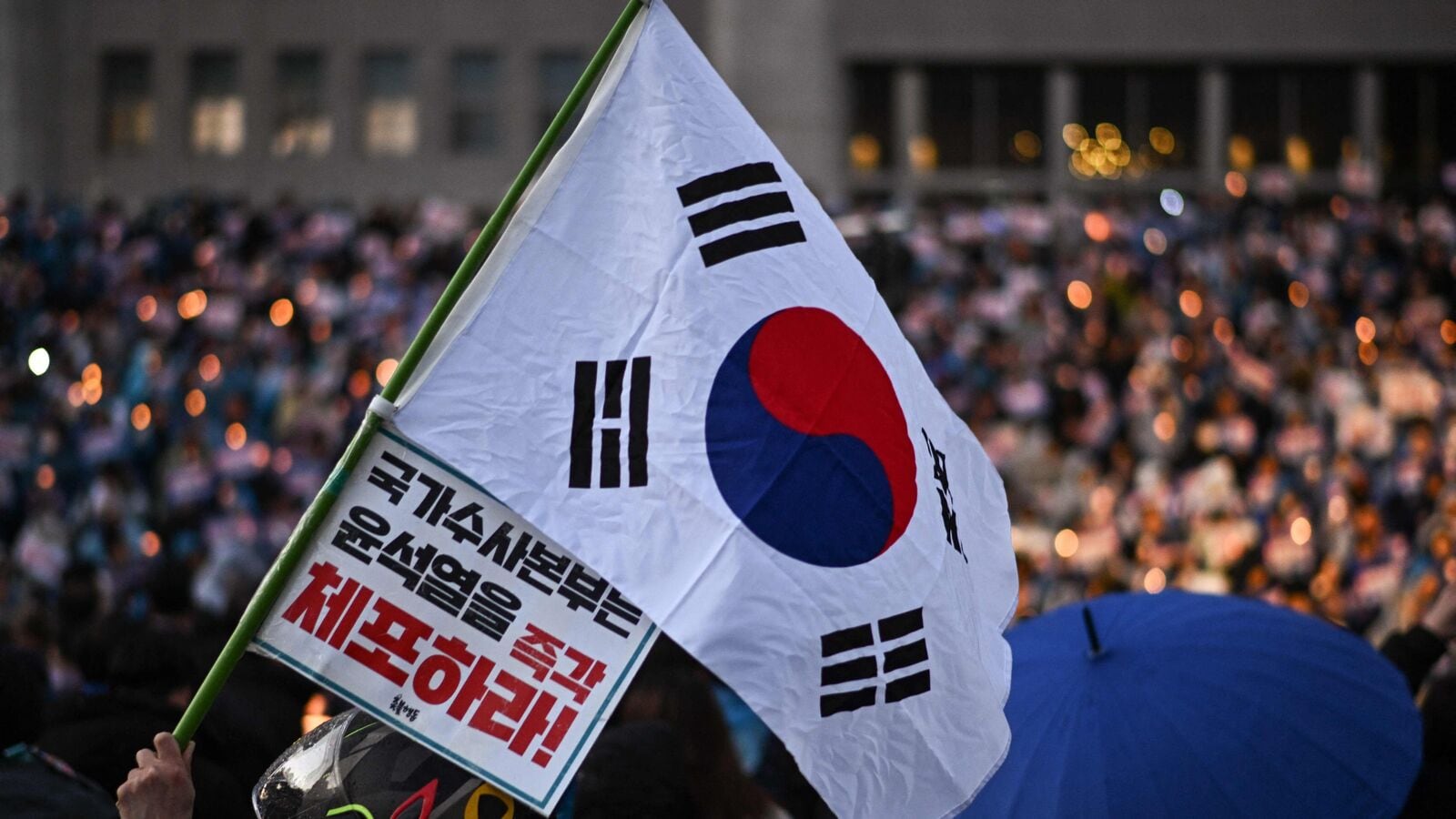But in a comedy of fortunate errors, transport helicopters for special army troops were delayed by 40 minutes because they did not have clearance from the air force to enter a no-fly zone near parliament. In that time, lawmakers repealed Yoon’s declaration of martial law. Huge crowds appeared outside parliament to protest against martial law, forcing Yoon to withdraw the order hours later.
Prime Minister Han Duck Soo has stepped in to act as interim leader while a court decides on the validity of Yoon’s impeachment for his attempt to impose martial law. Yoon’s tenure since 2022 had been characterized by Gangnam-style clumsiness and ineptitude. Even so, lessons loom large for several reasons.
Across the world, growth is slowing. Korea posted 0.1% quarter-on-quarter GDP growth for the third quarter, just as Germany did this week, with the German Bundesbank slashing forecasts. This is bad news for an incumbent government anywhere, as Olaf Scholz’s coalition, which lost a confidence vote this week, in Germany is likely to learn when early elections are held in February.
In Korea, and indeed elsewhere, a large part of the slump can be attributed to China increasing cheap exports as it tries to prop up industrial growth at home. Korea is being ravaged by competition from a rival whose companies do not operate by standard profit-and-loss principles.
As Financial Times’ Asia business editor Leo Lewis wrote this month, “Chinese companies now mount a formidable challenge in areas such as semiconductors, white goods and automotive that have been disproportionately responsible for Korea’s industrial miracle, and therefore disproportionately pain-inducing.”
But this is Germany’s problem too—and also India’s, with a huge and persistent trade deficit with China speaking volumes. As the prospect of a trade war with the United States looms, Beijing is opting to weaken its currency, which will put more pressure on countries such as India that have overvalued currencies and relatively weak manufacturing sectors.
Polarized politics, as seen in countries such as Korea, the US and India, has its own effects. It may explain why Yoon sought to use every power at his disposal to counter the opposition. In Seoul, trade unions were threatening strikes in December and the opposition was on the offensive because of Yoon’s mismanagement of the country; that his wife accepted a designer bag as a gift added to the public ire.
Donald Trump’s determination to pursue a policy of isolationism is another factor. In Korea’s case, Yoon went ahead with his declaration of martial law without informing the Joe Biden administration, despite the country being home to 24,000 American troops.
Last week, Turkey’s strongman President Recep Erdogan, who backed the rebels that brought down Syria’s Assad regime, told local media that he and Vladimir Putin, Russia’s president, were the only significant leaders in the world. This may sound like the soundtrack of a global pandemic of megalomania, but the comment said a lot. In West Asia, Israel’s government continues unfettered as never before.
The weakening of institutions is a global problem, with partisan judges and investigative agencies being used to settle political scores. This was visible in the Korean soap opera too. Yoon had been accused of seeking to muzzle the media and was wanting to disbar opposition leaders. This week, the US broadcaster ABC News settled out of court a defamation suit filed against it by Trump, paying him $15 million.
Trump promises more such suits, including one against a newspaper for incorrectly forecasting that he would lose Iowa in the presidential election. Meanwhile, corporate leaders everywhere appear to be lining up to praise the US president-to-be. This week, SoftBank’s Masayoshi Son appeared with Trump to announce $100 billion in investments.
Google CEO Sundar Pichai, weeks before the November election, reportedly called Trump to congratulate him on his campaign stop at a McDonald’s kitchen in Pennsylvania that went viral. “I actually got a call from Sundar, the head of Google, and he said, ‘Sir, I just want to tell you that what you did with McDonald’s was one of the biggest events we’ve ever had at Google,” Trump claimed on a widely followed podcast.
In America, Compromised, Harvard ethicist Lawrence Lessig argues that the problem is not just flawed leaders, but the rest of us. We are enablers, he says, as we buy into simplistic narratives such as the decline of the US or the global pre-eminence of India. And instead of indulging in perpetual internecine political battles, Lessig argues we need to accept that “even institutions can be flawed, and then rally a social or political force to step up and fix it.”
That is precisely what Korean lawmakers, thousands of protestors and military personnel who used minimal force or disobeyed orders valiantly did this month to prevent Korea from sliding back towards the dictatorship and martial law that characterized their country for decades into the 1980s.
The author is an angel investor and independent director



